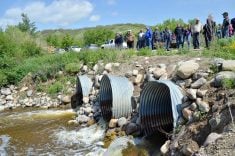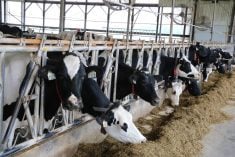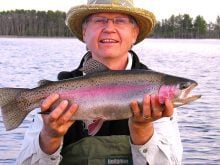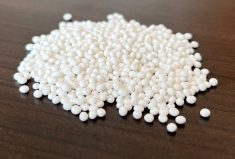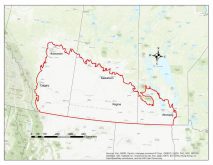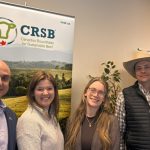A Souris-area rancher is turning a chunk of his land back into a marsh after fifty-some years, in a record-breaking project for Ducks Unlimited.
“It should be holding water,” said Sean Murphy of the land — currently bone dry and shorn for hay after a summer of drought.
Murphy runs cattle on about 2,500 acres near Souris in western Manitoba.
Ducks Unlimited Canada (DUC) worked with Murphy to fill a drainage ditch dug in the 1970s, which drained the land into Plum Creek, it said in an Oct. 21 news release. The 63-acre project is the biggest conservation agreement of its kind with DUC.
Read Also

Farm trade policy pundits lay CUSMA odds
What’s the future of Canada’s free trade agreement with the U.S. and Mexico? Policy experts try to read the stars on the issue
Once there’s water to hold, the marsh will fill and contain at least a bit of water year round, said Murphy. If it gets too full, water will spill over the top of the dam.
In a way he’s undoing his father’s work, done in a very different time. Murphy told the Co-operator that in the late 1960s and ’70s, farms to the west of their ranch were draining.
“Our farmland was completely flooded,” he said. “Our farm was just a holding pond.
“They had to do something,” he added.
Over time, conditions changed and now Murphy admits there’s been too much drainage. He said he’s happy to plug the ditch and hang on to some of the water.
Ideally, the centre of the land will hold standing water, wicking into the rest of the marshy ground and spurring hay growth, he said. Cattails and other pond-loving plants will provide cover for birds and insects.
“Like a sponge, wetlands hold winter moisture through the spring and early summer,” said Kylie Nielsen, the conservation project specialist who worked with Murphy on the project.
“By August, water levels will drop, allowing Sean to hay a portion of the acres,” she said in an email. “Restoring a wetland also restores the ecosystem by providing shelter and food for waterfowl and wildlife, filtering water and mitigating the effects of drought and flooding.”
The move was a family decision. Murphy, a dad of five, farms with his three sons. They’ve been transitioning the ranch to an organic operation, which, he said, requires more water.
Murphy said he’s been building a relationship with DUC over the past few years. He used to own a restaurant in Souris, and DUC would hold regional meetings there. He and his sons kept hearing DUC ads on the radio, and after talking it over, decided to give them a call.
The meeting resulted in a 10-year plan for the 63 acres, and Murphy says he’d be happy to extend it another 10 years. It aligns completely with his goals for the land.
This isn’t Murphy’s first collaboration with a conservation group. Earlier this year, his local watershed district helped him put a small weir, or dam, in Plum Creek to retain water for his cattle to drink.
“Water was an issue this summer. A lack of it,” he said.
DUC and Murphy have another, smaller project in the works which Murphy said will dam up another old drainage ditch. That project awaits co-operation from Manitoba Highways, as it borders a provincial roadway, said Nielsen.
Murphy’s farm sits within the Prairie Pothole Region. According to Ducks Unlimited, in some areas of the region, 70 per cent of Prairie pothole wetlands have been destroyed by changing land use.




